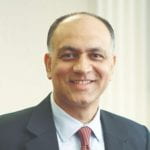Wednesday, September 29, 2021
12:00 p.m. – 1:30 p.m.
via Zoom
This was a joint Facing Inequality Series and Rethinking Capitalism & Democracy Series event featuring Peter Dietsch (University of Victoria).
Globalization and technological change are the two staple explanations of the income inequality between the relatively skilled and unskilled segments of the labor market. While recognizing their importance, this webinar turns the spotlight on another, neglected driver of income inequality. The mechanics of the labor market have a tendency to allow skilled workers to extract a significant wage premium. Arguably, the magnitude of this premium is neither just nor necessary for a functioning labor market. Interestingly, the policy response required to contain this centrifugal nature of the labor market differs markedly from the standard remedies to reduce income inequality.
Kathryn Holston (Harvard and World Bank) provided discussant remarks. This webinar was moderated by IIEP Director Jay Shambaugh with introductory remarks by IIEP Distinguished Visiting Scholar Sunil Sharma. The event was co-sponsored by GW Interdisciplinary Inequality Seminar, organized by Professor Trevor Jackson.
About the Speaker:
 Peter Dietsch is a professor in the Department of Philosophy at the University of Victoria, British Columbia. His research focuses on issues of economic ethics, notably on tax justice, normative dimensions of monetary policy, and on income inequalities. Dietsch is the author of Catching Capital – The Ethics of Tax Competition (Oxford University Press, 2015), co-author of Do Central Banks Serve the People? (Polity Press, 2018), and co-editor of Global Tax Governance – What is Wrong with It and How to Fix It (ECPR Press, 2016). He has published numerous articles and book chapters, and is a regular contributor in the media on debates in his field. Dietsch received the Friedrich Wilhelm Bessel Research Award from the Humboldt Foundation in 2021 and was nominated to the College of New Scholars, Artists and Scientists of the Royal Society of Canada in 2017. Prior to the University of Victoria, Dietsch taught at the Université de Montréal for 16 years. He has been a visiting fellow at the Wissenschaftszentrum Berlin, at the European University Institute in Florence, and at the University of Victoria.
Peter Dietsch is a professor in the Department of Philosophy at the University of Victoria, British Columbia. His research focuses on issues of economic ethics, notably on tax justice, normative dimensions of monetary policy, and on income inequalities. Dietsch is the author of Catching Capital – The Ethics of Tax Competition (Oxford University Press, 2015), co-author of Do Central Banks Serve the People? (Polity Press, 2018), and co-editor of Global Tax Governance – What is Wrong with It and How to Fix It (ECPR Press, 2016). He has published numerous articles and book chapters, and is a regular contributor in the media on debates in his field. Dietsch received the Friedrich Wilhelm Bessel Research Award from the Humboldt Foundation in 2021 and was nominated to the College of New Scholars, Artists and Scientists of the Royal Society of Canada in 2017. Prior to the University of Victoria, Dietsch taught at the Université de Montréal for 16 years. He has been a visiting fellow at the Wissenschaftszentrum Berlin, at the European University Institute in Florence, and at the University of Victoria.
About the Discussant:
 Kathryn Holston is an economist in the Office of the World Bank Chief Economist and a PhD candidate in economics at Harvard (on leave for the 2021-22 academic year). Since 2019, she has been a Stone PhD Scholar in Inequality and Wealth Concentration at Harvard. Her current work focuses on financial fragility during the COVID-19 crisis and banking crises throughout history. She is also interested in monetary policy, central bank independence and governance, and policymaking under low interest rates. Kathryn’s past work includes estimating the natural rate of interest for advanced economies with Thomas Laubach and John C. Williams, for which they received the Bhagwati Award for best paper in the Journal of International Economics. Previously, Kathryn has worked in the Monetary Studies Section of the Federal Reserve Board and as a Guaranteed Income Fellow at the Jain Family Institute. She is a graduate of the University of Pittsburgh, where she studied economics and math.
Kathryn Holston is an economist in the Office of the World Bank Chief Economist and a PhD candidate in economics at Harvard (on leave for the 2021-22 academic year). Since 2019, she has been a Stone PhD Scholar in Inequality and Wealth Concentration at Harvard. Her current work focuses on financial fragility during the COVID-19 crisis and banking crises throughout history. She is also interested in monetary policy, central bank independence and governance, and policymaking under low interest rates. Kathryn’s past work includes estimating the natural rate of interest for advanced economies with Thomas Laubach and John C. Williams, for which they received the Bhagwati Award for best paper in the Journal of International Economics. Previously, Kathryn has worked in the Monetary Studies Section of the Federal Reserve Board and as a Guaranteed Income Fellow at the Jain Family Institute. She is a graduate of the University of Pittsburgh, where she studied economics and math.
About the Moderators:
 Sunil Sharma is a Distinguished Visiting Scholar at the Institute for International Economic Policy, Elliott School of International Affairs, The George Washington University, Washington, D.C., USA, and a Senior Associate at the Council on Economic Policies, Zurich, Switzerland. He was Assistant Director in the IMF’s Research Department from 2015-2018, and the Director of the IMF- Singapore Regional Training Institute (STI) in Singapore from 2006-2015. Before moving to Singapore in 2006, he was Chief of the IMF Institute’s Asian Division in Washington, D.C. Prior to joining the IMF in 1992, Dr. Sharma was on the Economics faculty at the University of California, Los Angeles (UCLA). He has a Ph.D. and M.A. in Economics from Cornell University, a M.A. from the Delhi School of Economics, and a B.A. (Honors) from St. Stephen’s College, Delhi University. His current interests include rethinking capitalism and democracy, systemic hazards, complex systems, the international financial architecture, and the institutional structure and design of financial regulation.
Sunil Sharma is a Distinguished Visiting Scholar at the Institute for International Economic Policy, Elliott School of International Affairs, The George Washington University, Washington, D.C., USA, and a Senior Associate at the Council on Economic Policies, Zurich, Switzerland. He was Assistant Director in the IMF’s Research Department from 2015-2018, and the Director of the IMF- Singapore Regional Training Institute (STI) in Singapore from 2006-2015. Before moving to Singapore in 2006, he was Chief of the IMF Institute’s Asian Division in Washington, D.C. Prior to joining the IMF in 1992, Dr. Sharma was on the Economics faculty at the University of California, Los Angeles (UCLA). He has a Ph.D. and M.A. in Economics from Cornell University, a M.A. from the Delhi School of Economics, and a B.A. (Honors) from St. Stephen’s College, Delhi University. His current interests include rethinking capitalism and democracy, systemic hazards, complex systems, the international financial architecture, and the institutional structure and design of financial regulation.
 Jay Shambaugh is the Co-Director of the Institute for International Economic Policy and recently served as a member of the Biden transition team. His work includes analysis of the interaction of exchange rate regimes with monetary policy, capital flows, and trade flows as well as studies of international reserves holdings, country balance sheet exchange rate exposure, the cross-country impact of fiscal policy, the crisis in the euro area, and regional growth disparities. He has also served as a Member of the White House Council of Economic Advisors from 2015-2017. He also spent 3 years as the Director of the Hamilton Project at the Brookings Institution. He is also a Faculty Research Fellow at the NBER and Non-Resident Senior Fellow in Economic Studies at Brookings. Shambaugh received his Ph.D. in economics from the University of California at Berkeley, an M.A. from the Fletcher School at Tufts, and a B.A. from Yale University.
Jay Shambaugh is the Co-Director of the Institute for International Economic Policy and recently served as a member of the Biden transition team. His work includes analysis of the interaction of exchange rate regimes with monetary policy, capital flows, and trade flows as well as studies of international reserves holdings, country balance sheet exchange rate exposure, the cross-country impact of fiscal policy, the crisis in the euro area, and regional growth disparities. He has also served as a Member of the White House Council of Economic Advisors from 2015-2017. He also spent 3 years as the Director of the Hamilton Project at the Brookings Institution. He is also a Faculty Research Fellow at the NBER and Non-Resident Senior Fellow in Economic Studies at Brookings. Shambaugh received his Ph.D. in economics from the University of California at Berkeley, an M.A. from the Fletcher School at Tufts, and a B.A. from Yale University.
IIEP Rethinking Capitalism and Democracy Series
The COVID-19 pandemic, like the global financial crisis a decade ago, has laid bare the cracks in the leading capitalist democracies. Fissures in the political, social, economic, and financial orders, accompanied by an increasingly stressed natural environment, pose serious and possibly existential threats to these societies, as exploding income and wealth inequality subverts the integrity and fairness of markets and elections, weak regulatory oversight increases the likelihood and severity of the next crash, and the visible effects of climate change threaten lives and livelihoods and drive migrations. The three spheres of wellbeing – political and social, economic and financial, and the natural environment, are each becoming more fragile while their complex interrelationships are producing wicked challenges. The IIEP webinar series on Rethinking Capitalism and Democracy examines these difficult questions and possible policy responses.
IIEP Facing Inequality Series
The Facing Inequality series focuses on current and emerging inequality issues in the U.S. and around the globe, especially those revealed by the current COVID-19 pandemic. It brings together historians, economists, sociologists, political scientists, and epidemiologists, within the academy and without, to present work and discuss ideas that can facilitate new interdisciplinary approaches to the problem of inequality. It is a platform for dialogue and debate. This series is organized under the stewardship of IIEP Co-Director James Foster; Oliver T. Carr, Jr. Professor of International Affairs and Professor of Economics; and IIEP Faculty Affiliate Trevor Jackson, Assistant Professor of History. It is co-sponsored by the GW Interdisciplinary Inequality Series and co-organized by Professor Trevor Jackson from the Department of History and Professor Bryan Stuart from the Department of Economics.
